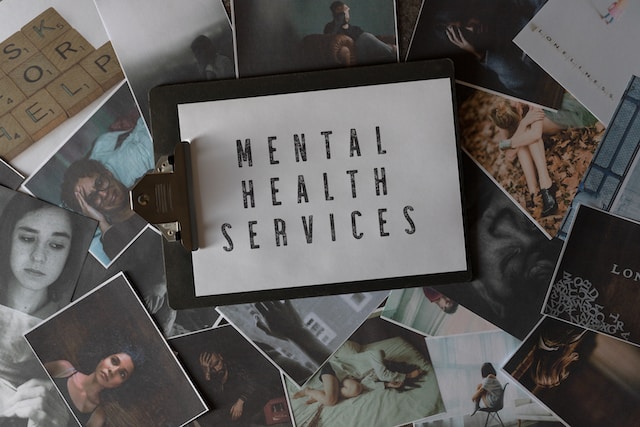Table of Contents

As stigmas fade and people become more aware of mental health issues, they are seeking help. This increase is driving demand for nurses with specialized training.
So, what is the role of an NP in Psychiatry? Nurses who choose to focus on psychiatry expand their advanced practice nursing roles with an optional, but important new role. This article will discuss what this role entails and why it is beneficial. Continue reading to answer the question: What is the role of an NP in Psychiatry?
Continuity of Care
What is the role of an NP in Psychiatry? Psychiatric nurse practitioners often find themselves in the midst of complex care situations. It can be challenging to ensure all relevant information is communicated between multiple providers, especially when the topic is value-laden and sensitive (e.g., end-of-life issues or discharge destination).
Continuity of care also involves consistent communication between patients and their Psychiatric NPs, which requires a high degree of empathy. Psychiatric NPs work to listen carefully to their patients and understand their medical and emotional needs, addressing concerns as they arise.
Changing health care delivery puts PMHNPs in a unique position to provide consultative psychiatric services to primary care settings. In addition, most states allow PMHNPs to prescribe medication without physician oversight. Still wondering what is the role of an NP in Psychiatry? Keep reading to learn more!
Diagnosis
What is the role of an NP in Psychiatry? Psychiatric nurses have the training and skills to assess, diagnose and treat mental health patients. They have a unique perspective because they are trained to see the connection between physical symptoms and emotional ones.
They can use this perspective to identify a patient’s needs and provide them with holistic treatment plans. They can also help a patient find solutions, even if that means connecting them with someone else who can offer alternative care.
PMHNPs often work alongside psychiatry doctors in doctor’s offices that specialize in mental health. This allows them to get a full patient history, assist with diagnostic tests and help determine what type of treatment is best for their specific situation. It also ensures continuity of care and provides the patient with a familiar face to talk to.
Treatment
What is the role of an NP in Psychiatry? As in many healthcare fields, there is a shortage of mental health professionals. According to one report, by 2025, demand for psychiatrists will exceed supply, but this is not the case with psychiatric nurse practitioners (PMHNPs).
PMHNPs have the graduate-level training and scope of practice to deliver comprehensive care, including education, assessment, diagnosis and treatment of patients. Their therapeutic approach combines interpersonal nursing theory with psychotherapy and short-term family models of treatment.
People with chronic mental illness often have co-occurring medical problems such as heart disease, diabetes mellitus and gastrointestinal or genitourinary disorders. Because psychiatric nurse practitioners also have the ability to assess physical health, they can make referrals for specialist consultation. PMHNPs provide treatment in a variety of settings including hospitals, ERs, residential and addiction recovery facilities, private practices and community mental health centers.
Education
What is the role of an NP in Psychiatry? A key part of a psychiatric nurse practitioner’s role is education. They help patients understand their medical conditions, and they also teach them to manage their symptoms. This is a crucial part of treatment, because many people don’t know what to do or how to cope.
Psychiatric nurses are also equipped to educate about the importance of maintaining a healthy lifestyle. This is a great benefit for patients who have been diagnosed with mental health disorders, as it can help prevent future episodes. Psychiatric nurses are trained to recognize the physical symptoms of a patient, too, so they can help them address underlying problems. They can even recommend certain medications to treat these symptoms.
Prevention
What is the role of an NP in Psychiatry? In addition to treating a patient’s mental health condition, the psychiatric nurse practitioner (PMHNP) is also well versed in screening for common medical disorders. The chronically mentally ill have an increased risk for medical problems such as diabetes, heart disease, and gastrointestinal or genitourinary diseases.
The PMHNP is ideally suited to screen for these conditions because of her nursing training and scope of practice. She is able to combine interpersonal theory with short-term family models of care and has knowledge of the latest in neurobiology and psychopharmacology. The PMHNP can also assist in the design of managed care systems that are efficient, cost-effective, and humane. (Archives of Psychiatric Nursing, February 1996). This is in keeping with IOM’s recommendation that nurses “be active partners in the development and improvement of the quality of health care.” (IOM, 2011)..
What is the role of an NP in Psychiatry? Contact me if you still have questions!
What is the role of an NP in Psychiatry? Do you have questions still have questions? I’m happy to help! I’m a board-certified psychiatric nurse practitioner. I’ve worked in a variety of settings, including inpatient and outpatient hospitals, community mental health centers, and private practices.
I’m passionate about helping people with mental health challenges live better lives. I believe that NPs play a vital role in the mental health care system, and I’m committed to providing high-quality, evidence-based care.
If you have any questions about my services or the role of an NP in psychiatry, please don’t hesitate to contact me. I’m happy to answer your questions and provide you with more information.
Hopefully this blog answered the question, what is the role of an NP in Psychiatry? I look forward to hearing from you soon!